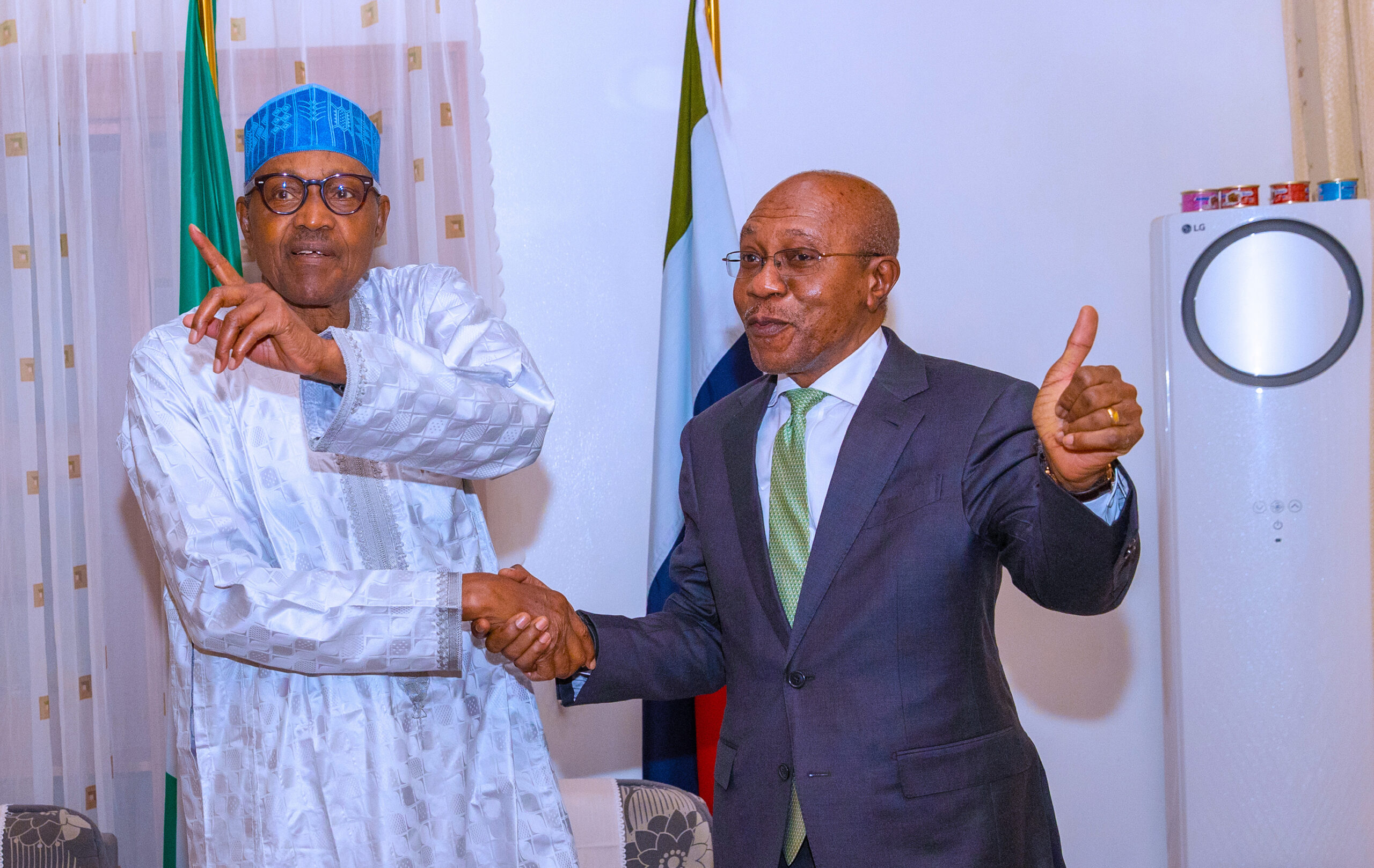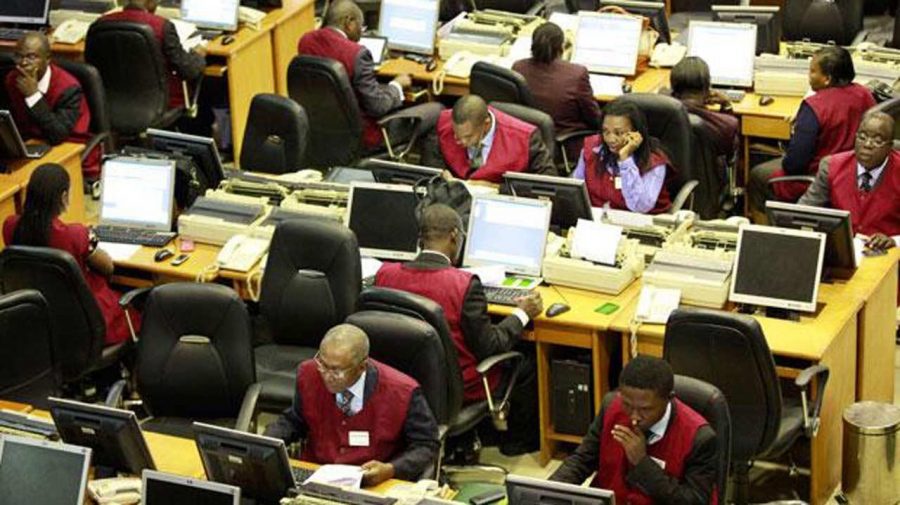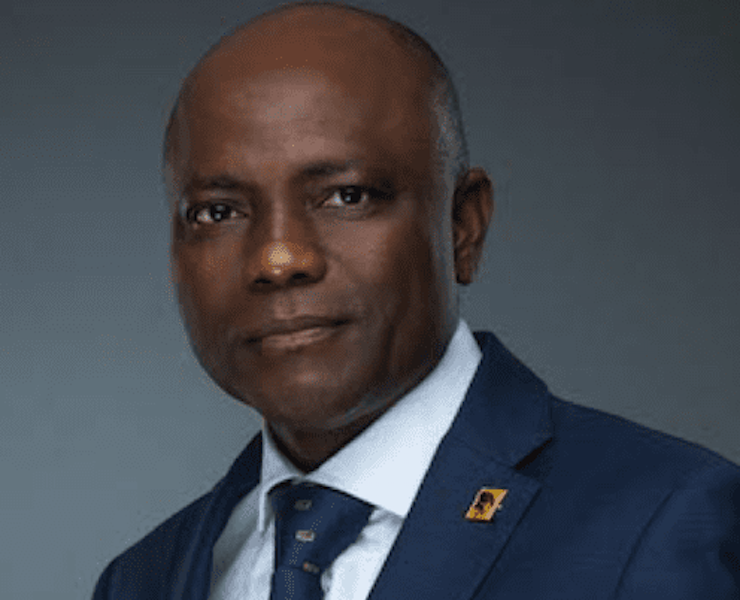The Special Investigator on the Central Bank of Nigeria and Related Entities, Jim Obazee, has indicated that the recent naira redesign wasn’t expressly approved by former President Muhammadu Buhari.
Obazee had gathered that the approval came from Buhari’s aide, Sabiu Tunde ‘Yusuf’.
This was contained in the investigator’s final report tagged, ‘Report of the Special Investigation on CBN and Related Entities (Chargeable Offences) submitted to President Bola Tinubu on Wednesday.
Recall that Obazee, a former Executive Secretary of the Financial Reporting Council of Nigeria, was named by Tinubu as the CBN special investigator in a letter dated July 28, 2023.
The report revealed that it was the embattled former CBN governor, Godwin Emefiele, who, in collaboration with Sabiu, implemented the naira redesign.
Sabiu is the former President’s nephew.
The PUNCH reports that Emefiele, who is currently in Kuje Custodial Centre, is being prosecuted for N1.2bn in procurement fraud.
He has not been able to perfect the N300m bail granted him by the High Court of the Federal Capital Territory on November 22, 2023.
However, documents obtained by The Punch on Thursday indicated that the former apex bank governor might face fresh criminal charges over the handling of the CBN naira redesign policy.
Emefiele could be “prosecuted for illegal issuance of currency under Section 19 of the CBN Act alongside Tunde Sabiu and the 12 top directors of the CBN.”
It was gathered that the naira redesign policy was sold to Buhari at the instance of Sabiu and that the initiative was done without the approval of the board of the CBN.
The investigator found that Buhari didn’t approve of the naira redesign. It was Tunde Sabiu who first told Emefiele in September 2022 to consider the redesign of the naira.
“On October 6, 2022, Emefiele wrote to Buhari that he wanted to redesign and reconfigure the N1000, N500, and N200 notes.
“The former president tagged along but did not approve the redesign as required by law. Buhari merely approved that the currency be printed in Nigeria. The redesign was only mentioned to the board of the CBN on December 15, 2022, after Emefiele had awarded the contract to Nigerian Security Printing and Minting Plc on October 31, 2022,’’ the documents noted.
Emefiele was said to have contracted the redesign of the naira to De La Rue of the UK for £205,000 under the vote of the head of the Currency Operations Department after Nigerian Security Printing and Minting Plc said it could not deliver the contract within a short timeframe.
It further showed that “the special investigator found that N61.5bn was earmarked for the printing of the new notes, out of which N31.79bn had been paid.
“As of August 9, 2023, findings revealed that N769bn of the new notes were in circulation.
“The probe of the CBN also revealed the fraudulent use of N26.627tn Ways and Means of the Apex Bank as well as the misuse of the COVID-19 intervention fund.
“For instance, the CBN under Emefiele at its 661st meeting held on October 27, 2020, approved that the Consolidated Revenue Fund Account should be debited with the sum of N124.860bn, and the decision was implemented on October 9.
“Similarly, the Committee of Governors, at its 670th meeting held on December 9, 2020, granted ‘anticipatory approval’ pending receipt of a formal request by Mr President and ratification by the board of directors for the payment of the sum of N250bn only to the Federal Government of Nigeria to address challenges as a result of low revenue inflow and the payment of salaries.
“The decision was implemented on December 15, 2020.”
The CBN investigator discovered that the CBN Ways and Means was abused under the Buhari administration.
The PUNCH reports that under the CBN Act, the Ways and Means provision allows the government to borrow from the apex bank if it needs short-term or emergency finance to fund delayed government expected cash receipts of fiscal deficits.
Meanwhile, it cost the CBN and its subsidiary about N74.84bn to produce and roll out currencies, including new naira notes, in 2022, according to The Punch report.
Despite the scarcity of naira that plagued the country in the latter months of 2022, the CBN spent 40.42 per cent more than the N53.29bn it spent in the preceding year to roll out currencies.
The Punch

 News6 years ago
News6 years ago
 Featured6 years ago
Featured6 years ago
 Boss Picks6 years ago
Boss Picks6 years ago
 Headline6 years ago
Headline6 years ago
 Headline6 years ago
Headline6 years ago
 Headline5 years ago
Headline5 years ago
 Headline6 years ago
Headline6 years ago
 Headline6 years ago
Headline6 years ago













